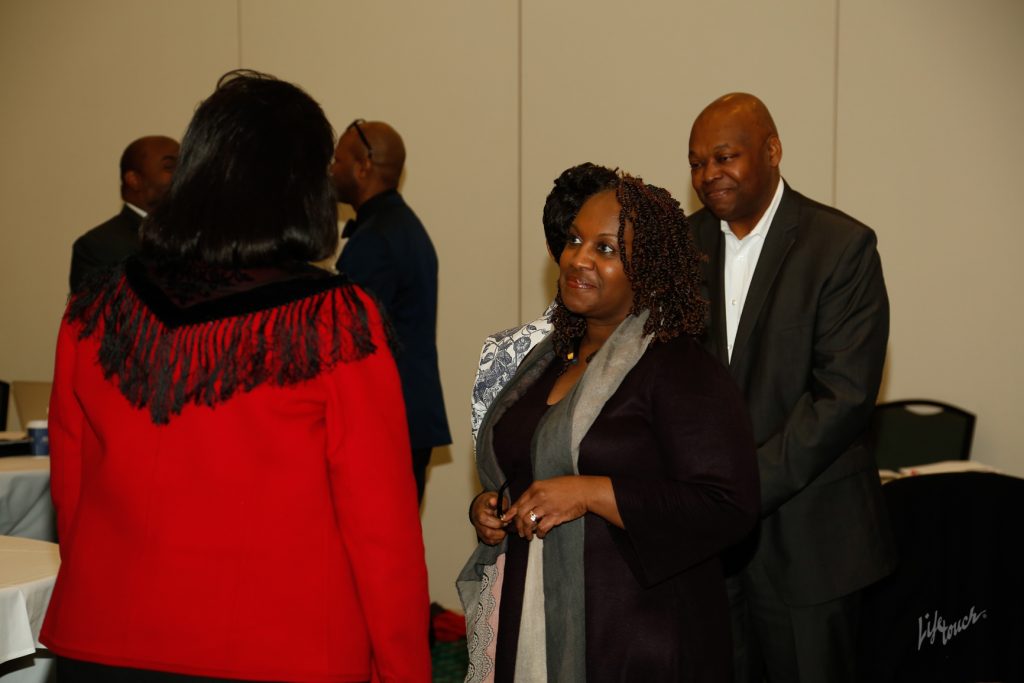“I am unapologetic about my beliefs.”
That was what John Deasy, someone who held four superintendencies, including Los Angeles, told an audience of superintendents and aspiring superintendents in AASA’s Urban Superintendents Academy, which met Wednesday in Nashville, a day before the start of the association’s national conference.
Deasy, describing himself as a white, Irish Catholic who grew up in Boston, addressed an audience that was nearly 100 percent African American. He said, “I’m a liberal white person and white privilege has given me advantages.” But childhood had challenges too, he added, noting he grew up in a family where both parents were substance abusers.
Deasy now manages an alternative corrections facility for youth.
“I have found a lot of people just believed that not all kids can learn,” Deasy said, “and those students who were not learning were predominantly black or brown.”
The problems were so widespread in Los Angeles, where he spent 2½ years as district leader, that Deasy took drastic measures to improve the culture of the school system. He fired everyone in the central office, as well as many teachers and principals. He personally screened candidates for principalships, which was hugely time-consuming but essential before they hired new teachers.
With new staff in place, he took on other controversial issues including tenure (which was basically automatic) and student suspensions. Both causes brought bruising battles. In a district where 49,000 students were suspended for 10 to 15 days or more, he delved into the reasons behind the huge number. Having worked previously in corrections, Deasy wanted to end LAUSD’s complicity in the school-to-prison pipeline.
When he dug into the particulars, he learned 93 percent of disciplinary actions were for “willful defiance,” which meant such serious offenses as striking a teacher or bringing a weapon to school occurred in a small percentage of cases. More typically, Deasy said, students “wouldn’t pick up a piece of paper or didn’t bring in a book. That wasn’t defiance – that was adolescence!”
Deasy said he told the staff: “This is your problem.”
After 2½ years of fast-tracked change where systemic moves on every front created different problems, Deasy’s tenure came to an end. He admitted to the academy participants that he moved too fast to change things and tried to shame school board members to go along with his changes rather than discussing with them the need to change. But, he added, the one thing “I learned is that change is absolutely do-able” and Los Angeles was the fastest-improving urban district at the time he left.
Another former superintendent, Sam King, the lead superintendent educator for AASA’s Urban Superintendents Academy, challenged the participants to ask themselves, “Do you really want to be an urban superintendent?”
“This is difficult work” to change the status quo, King said. “Racism is rampant, and it is not a level playing field. As a person of color, you will face additional scrutiny and be held to a different standard.”
His candid remarks drew on his professional experience as an African American superintendent.
Cinto Ramos, the first Latino board member in the Fort Worth, Texas, Independent School District, also addressed the academy at Wednesday’s day-long session.
“Superintendents who are change agents make the unpopular decisions, even when it means putting their job on the line,” Ramos said. “Effective superintendents who are change agents focus on the key things that must change.”
(Liz Griffin is senior editor of Conference Daily Online.)

